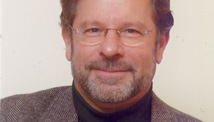Time to rethink Afghanistan strategy?

- Cliff May says with Bin Laden gone, some say U.S. should pull out of Afghanistan
- But he says Afghanistan Taliban's Islamism let al Qaeda root there; that's still our war
- He says writer Bing West says U.S. does too much nation-building, not enough killing enemies
- May: U.S. should rethink whether its approach still gets at goal of defeating Islamist foes
Editor's note: Clifford D. May is president of the Foundation for Defense of Democracies, a policy institute focusing on terrorism and Islamism.
(CNN) -- In the wake of the daring U.S. special ops strike that killed Osama bin Laden on Sunday, many critics are calling on President Obama to declare victory and pull out of Afghanistan. As they note, we got bin Laden in a suburban neighborhood of Pakistan, far from the border areas where the Taliban fighters regroup.
Yet it is not a coincidence that of all the lawless and under-governed regions of the world, al Qaeda took root in Afghanistan. Until we drove out the Taliban -- with which we have been at war ever since it refused to surrender bin Laden -- it gave al Qaeda the run of the land, because it shared the group's brutal Islamist vision for the world.
It is that vision that America and other free nations must challenge. That is the real war. Afghanistan is one front. President Obama's policies need to never lose sight of the goal. If they do -- and perhaps they have -- now would be an appropriate time to change them.
There is no question that keeping the Taliban out of power in Afghanistan will be a challenge. One of the wisest critics of our strategy there is my colleague at the Foundation for the Defense of Democracies, Bing West, a Marine combat veteran and former Pentagon official. In his 1972 book, "The Village," West chronicled the experiences of a small band of Marines doing counterinsurgency in Vietnam. That book stood on the Marine Corps Commandant's required reading list for almost 40 years. In "The Strongest Tribe,"
he explained how Gen. David Petraeus and his troops turned the situation around in Iraq.
Roots of terror untouched by Bin Laden's death
 Reps. demand Afghanistan exit strategy
Reps. demand Afghanistan exit strategy
 Causes of extremism remain
Causes of extremism remain
 Afghan amb.: 'No doubt about his death'
Afghan amb.: 'No doubt about his death'
 Osama bin Laden lives on in DVDs
Osama bin Laden lives on in DVDs
Over the past two years, he has embedded dozens of times with front line units in Afghanistan and, based on those experiences, he has produced yet another book: "The Wrong War: Grit, Strategy and the Way out of Afghanistan," in which he argues that our political leaders are ordering our troops there to put too much emphasis on nation-building and not enough on killing the enemies of the United States and the Afghan people.
As West notes, in 2008, Secretary of Defense Robert Gates told the colonels at the National Defense University that, "Where possible, kinetic operations should be subordinate to measures to promote better governance, economic programs to spur development and efforts to address the grievances among the discontented."
As a result, not surprisingly, U.S. commanders are doling out aid money and undertaking development projects of questionable utility when they might more effectively be working with Afghans to pound the enemy into dust, and training Afghans to do such work with decreasing need of assistance.
In West's view, U.S. commanders have become "de facto district governors, spending most of their time on nonmilitary tasks," and the U.S. military in Afghanistan has turned into "a giant Peace Corps."
These criticisms take nothing from the accomplishments of Petraeus and his troops. During Petraeus' brilliantly orchestrated Iraq surge, most Iraqis understood that while al Qaeda and Iran were eager to control their lands and their lives, Americans wanted only to complete their mission and go home.
Afghanistan is a different place, and the Taliban is a different enemy, but success remains possible. However, as we contend with high rates of attrition in the Afghan National Army, to say nothing of continuing Taliban infiltration and the use of bases across the border in Pakistan, West argues that we need a revised strategy.
The United States should establish and maintain adviser task forces to go into combat with Afghan forces, in his view, enabling them to mount larger operations with greater fire support. The United States could achieve these ends in Afghanistan, West claims, "while reducing our total force from 100,000 to 50,000."
In early 2007, as he faced the prospect of a humiliating defeat in Iraq, President Bush changed strategies. Four years later, to avoid a no less consequential defeat in Afghanistan, President Obama may have to follow Bush's example.
With Gates soon to leave the Pentagon, CIA Director Leon Panetta soon to arrive in his place and Petraeus soon to fill Panetta's shoes at the CIA, now is the time for Obama to listen hard to a variety of perspectives.
In his 2008 campaign, Obama made the Afghanistan war his own. He must maintain our commitment to defeating the Taliban, the movement that gave bin Laden the time and space to plan the most grievous attack in the history of the United States. He must commit to winning the global war against the Islamist enemies of free nations as well.
The opinions expressed in this commentary are solely those of Clifford D. May.
NewsPulse









